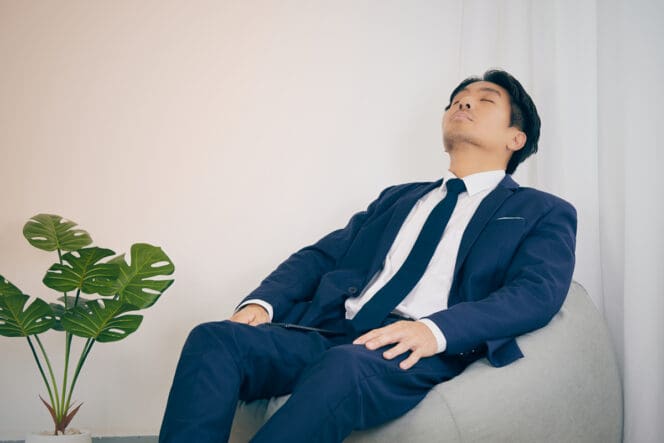Sleeping with your contact lenses in your eyes goes against best practices for wearing them, according to manufacturers.

With your eyes closed for such an extended period, contacts tend to dry out and tighten on your cornea.
Such use makes wearers much more susceptible to eye infections.
Wearing Contact Lenses at Night
Contact lenses give us an opportunity to live life without being restricted by glasses. This opportunity has many benefits, but it also has drawbacks if you don’t use and care for your contacts properly.
While manufacturers recommend that you remove your contacts prior to falling asleep, sometimes we forget. But our eyes need oxygen to thrive, and wearing contacts means covering the cornea with a thin, partially permeable piece of plastic that improves vision.
Falling asleep with your contacts in will hinder the flow of oxygen to your eyes and, over time, can cause permanent damage.
Is It Safe to Sleep with Contacts In?
Eye specialists often get the question: Is it safe to sleep with your contacts in? In short, no.
Sleeping in contacts can harm your eyes in several ways. As you sleep, the lack of oxygen to your eyes can cause several things to occur.
If your eyes start to dry out while you rest, they can cause your contacts to tighten over your cornea. This can lead to abrasions and increase your risk of having an eye infection by five times or more. Removing your contacts before you fall asleep at night reduces your risk of infection and helps you maintain good eye health.
Problems Caused by Sleeping with Contacts
Sleeping with your contacts in — especially if you do it continually — can lead to a variety of problems, including the following:
- Irritation
- Redness
- Increased risk of eye infection
- Damage to the corneas
- Partial blindness
Continuing to sleep with your contacts in may eventually lead to irreversible partial blindness. That, obviously, brings life-altering consequences. In that case, you will no longer be able to see as well as you once could.
Why Does Sleeping in Contacts Harm Your Eyes?
Your eyes need oxygen. The eyes have unlimited access to oxygen while you are awake and your eyes are open. Even when you wear contacts, you have access to enough oxygen to keep your eyes healthy and safe.
Wearing your contacts while you sleep, however, makes it harder for your eyes to get the oxygen they need. With your eyes being closed for several hours, the plastic barrier created by your contacts can be harmful and result in long-term damage.
What if You Sleep in Them by Accident?
Accidents happen. There may be a time or two when you doze off with your contacts in. If you happen to fall asleep with your contacts in, you should take them out for a short period of time as soon as you wake up. You may find that nothing happens if you sleep in your contacts once or twice. The more you sleep in them, however, the more you increase your risk of an eye infection. Even if you don’t get an eye infection, you may experience abrasions or irritation to your eyes that could lead to long-term damage.
Signs of an Eye Infection
There are many signs that indicate you have an eye infection. They include:
- Redness
- Irritation
- Soreness
- Watering
- Warm to the touch
- Swelling
- Green or yellow matter
Redness, watery eyes and irritation are the first signs of an eye infection. Slight irritation that does not go away within a few hours more than likely will turn into a more severe eye infection.
If symptoms do not subside immediately, schedule an immediate appointment with your eye doctor.
When to See a Doctor
You should contact your eye doctor any time your eyes become sore, red, or irritated. Sleeping with your contacts in can cause damage to your corneas that goes far beyond a simple infection.
Anytime your eyes begin to bother you, schedule an appointment with your eye doctor. If you want to keep your eyes healthy, it’s important to have them checked regularly.
Tips for Safe Contact Wear
To wear your contacts safely, there are a few things you can do:
- Take them out every night before bed.
- Wash your hands thoroughly before handling them.
- Clean your contacts according to directions.
- Always follow your doctor’s orders.
Take proper care of your contacts and you should be able to wear them without any difficulties.
Contact lenses are a good choice if you don’t want to wear bulky glasses. It’s important to protect your eyes and follow your doctor’s orders.
Keeping eye infections at bay and protecting your eyesight is up to you. Avoid sleeping in your contacts and you will be able to enjoy the rewards for longer periods of time.
References
-
Why You Shouldn’t Sleep with Contacts In. (March 2022). Sleep Foundation.
-
What Happens to Your Eyes When You Sleep in Your Contacts. (November 2020). Cleveland Clinic.
-
Sleeping with Contact Lenses. Vision Direct Co UK.
-
Can You Sleep With Contacts In? (March 2022). Sleep.org.
Last Updated April 27, 2022
Note: This page should not serve as a substitute for professional medical advice from a doctor or specialist. Please review our about page for more information.